In the Margins
A book is a fail-safe gift: Even if the recipient doesn’t love it, at least it says that you think she or he is smart. You can find most of these titles at Talking Leaves Books (951 Elmwood Avenue and 3158 Main Street). Try Rust Belt Books (202 Allen Street) if you’re looking for something used, out of print or local—Talking Leaves has local interest stuff, too, but not as big and not as quirky a collection as Rust Belt. For a truly unique gift, try Old Editions (74 East Huron Street) or the Antique Man (234 Allen Street).
The Lost: A Search for Six of Six Million
By Daniel Mendelsohn
(HarperCollins)
The author attempts to trace the fate of his uncle, Shmiel Jäger, and his family, who died in the Holocaust.
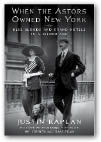
When the Astors Owned New York: Blue Bloods and Grand Hotels in a Gilded Age
By Justin Kaplan
(Viking)
An entertaining history of several generations of the obscenely wealthy Astor family.
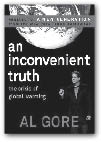
An Inconvenient Truth: The Crisis of Global Warming
By Al Gore
(Viking)
Now in paperback and guaranteed to dispel the recipient’s doubts about global warming.
The Humboldt Current: Nineteenth-Century Exploration and the Roots of American Envionmentalism
By Aaron Sachs
(Viking)
Chronicles the beginning of American environmentalism as inspired by the Prussian scientist Alexander von Humboldt.
Night
By Elie Wiesel
(Hill and Wang)
The definitive memoir of a Holocaust survivor, with a new introduction by the author.
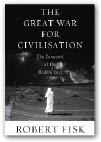
The Great War for Civilization: The Conquest of the Middle East
By Robert Fisk
(Knopf)
Fisk, one of the most erudite journalists writing about the Middle East today, opens with one of his two interviews with Osama bin Laden.
Prisoners: A Muslim and a Jew Across the Middle East Divide
By Jeffrey Goldberg
(Knopf)
Goldberg, an American Zionist and the New Yorker’s Washington correspondent, writes a painfully conflicted account of his 15-year friendship with a Palestinian insurgent.
Making Globalization Work
By Joseph E. Stiglitz
(W. W. Norton)
The Nobel Prize-winning economist posits the ways and means toward equitable globalization, which, he says, can be “saved from its advocates.”
Brewer’s Dictionary of Phrase & Fable
Edited by John Ayto
(Collins)
The 17th edition of one of the most entertaining and useful reference books in the English language.
Singing in a Strange Land: C. L. Franklin, the Black Church, and the Transformation of America
By Nick Salvatore
(Little, Brown)
This biography of Aretha Franklin’s father sheds light on the struggles of southern blacks trying to make new lives in the north.
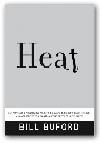
Heat: An Amateur’s Adventures as Kitchen Slave, Line Cook, Pasta-Maker, and Apprentice to a Dante-Quoting Butcher in Tuscany
By Bill Buford
(Knopf)
The New Yorker contributor offers an inside look at working in celebrity chef Mario Batali’s kitchen.
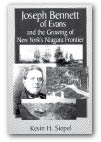
Joseph Bennett of Evans and the Growing
of New York’s Niagara Frontier
By Kevin H. Siepel
(Spruce Tree Press)
In a journal entry dated April 15, 1865, the day after Lincoln’s assassination, Joseph Bennett wrote the following description of a scene in Buffalo, New York: “A man went into a saloon and said to the proprietor, What do you think of your little god now? Proprietor came slowly around his counter, kicked the man out onto the sidewalk, and from the sidewalk into the gutter. I think if he had killed the man, a jury could not be found that would convict him.”
So who was Joseph Bennett? Born in Vermont in 1803, Bennett, whose life spanned most of the 19th century, left his mark on Western New York and in the process took the time to describe it in the pages of his diary. What emerges through Joseph Bennett of Evans and the Growing of New York’s Niagara Frontier, by Kevin H. Siepel, is a fascinating and highly readable portrait of our area as harsh wilderness slashed through with mud (and later wood plank) roads—the site of murders, public hangings, horrific shipwrecks, cholera outbreaks, wrenching poverty and untimely deaths, taverns and temperance movements, but also joyful sleigh-rides and sunny, bucolic summer afternoons in the close company of friends, family and loved ones.
Siepel succeeds in gracefully interweaving the two strands of his narrative—juxtaposing the subjective journal entries against the historical backdrop in which they were written. Bennett wore many hats during his 93 years. We have glimpses of him as a 10-year-old drummer boy in the War of 1812, through his years as a young businessman and later as an assemblyman in Albany—where he appears to have grown frustrated with the way things worked. “Such examinations and reports,” he commented, “are all bosh,”referring to a committee report on conditions at Sing Sing state prison.
We hear from Bennett as canal builder (both in New York and Pennsylvania), farmer, deacon of his church, Erie County Coroner, Superintendent of the Poor in Erie County during the Civil War, avid sailor, father of a large family during the most trying of circumstances and finally as the proprietor of the Bennett Homestead—one of the earliest resort locations on the eastern shore of Lake Erie on the site of present-day Bennett Beach. Joseph Bennett of Evans and the Growing of New York’s Niagara Frontier will appeal to anyone with even a casual interest in the rich history of this, the original West.
—buck quigley
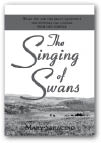
The Singing of Swans
By Mary Saracino
(Pearlsong Press)
I was disappointed to miss a reading and talk by author Mary Saracino when I inconveniently fell ill for a few days this fall. Her newest novel, The Singing of Swans, tells the story of woman who finds herself channeling the lives of three other women who begin to invade her dreams—an 18th-century herbalist and painter, a 16th-century Italian witch and an ancient Sicilian priestess. This engaging and well-researched novel is a fun introduction to the Sacred Feminine—and it made an entertaining sickbed companion too. Saracino is, incidentally, the sister of Buffalo State’s celebrated metal-working and jewelry design professor, Stephen Saracino, who swears that Mary is the smartest of the seven talented Saracino siblings. The book is published by Pearlsong Press, and is available at Talking Leaves.
—anthony chase
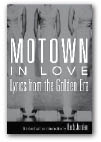
Motown in Love: Lyrics from the Golden Era
Edited by Herb Jordan
(Pantheon Books)
The songs of the golden era of Motown transcended race, genre and age: They are songs for everyone, for anyone. Even if you were not around for the heyday of Motown, you probably know the story, the tales of the music that wafted up from the gritty streets of Detroit and showed up, polished and full of hopeful promise, on every radio across the country. The names of the song writers—Berry Gordy Jr., William “Smokey” Robinson, Marvin Gaye, Stevie Wonder, Edward Holland, Lamont Dozier and Brain Holland, among others—reads like a who’s who list of American pop culture. The artists themselves, in addition to those that also wrote the songs, were masters of lyrical interpretation, vocalists of a caliber that are rarely encountered on today’s top 40 charts. Artists like Marvin Gaye, the Contours, the Temptations, Gladys Knight and the Pips, the Supremes and Smokey Robinson dominated the charts, and all of America, it seems, fell in and out of love to an incomparable soundtrack, full of rhythm, insight and the unforgettably cool sounds of the Motor City.
Motown in Love: Lyrics from the Golden Era presents the lyrics to all of the great songs of a musical era, neatly and conveniently organized by topic. Herb Jordan, a scholar and frequent commentator on American culture, writes an efficient and insightful introduction, though the songs themselves need no introduction. The book’s only failing is that the accompanying photographs are printed on the same cream-colored paper as the lyrics, depriving them of the glossy finish that would benefit such rare images of the musical powerhouses of the Motown catalog. This is a book that deserves to be on the shelf of every aspiring musician, every fan of the classic Motown catalog, and every student of American culture.
—jill froebel
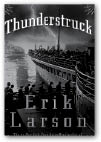
Thunderstruck
By Erik Larson
(Crown)
In his new book, Thunderstruck, author Erik Larson seems to have found a comfortable niche: historical nonfiction that mixes a topic that average readers would normally skirt away from with another that they pick up all too often. In his last book, The Devil in the White City, a National Book Award Finalist, he chronicled the 1893 World’s Fair in Chicago, an event more important than history gives it credit for (it’s where the Pledge of Allegiance, Columbus Day and the Ferris wheel all come from), and H.H. Holmes, who came to be known as America’s first serial killer.
In Thunderstruck, he pairs Guglielmo Marconi, the inventor of the wireless telegraph, and another murderer with the initials H.H. This time it is not someone as elaborately devious as H.H. Holmes, but instead someone pushed into a corner where murder seemed like the only escape: Dr. Hawley Harvey Crippen, whose story was destined to come crashing into that of Marconi’s.
H.H. Crippen is not as devious as Holmes, but instead a man who had much expected of him (his hometown newspaper would print articles when he would come back to town), only to end up a failure, bouncing around from one job in homeopathic medicine to the next in the United States and England. His wife, with her unquenchable dreams of being an opera singer and voracious desire for an expensive lifestyle and things, leads Crippen down the path of a murderer. When he flees the country with his mistress, Marconi may unwittingly provide the technology that could bring Crippen to justice—simultaneously giving birth to a plot which authors of detective fiction have been using as inspiration ever since.
While Larson’s detractors may claim that the pairing of the stories of Marconi and Crippen is nothing more than a gimmick, they cannot discount his ability to tell a good story, and a true one at that. Whether or not Mr. Larson’s next book will pair another murderer with a forgotten time in history is yet to be seen, but if it captures half the magic of Thunderstruck, it will, no doubt, be another success.
—todd natti
|
Issue Navigation> Issue Index > v5n50: Last-Minute Holiday Gift Guide (12/14/06) > Last Minute Holiday Gift Guide > In the Margins This Week's Issue • Artvoice Daily • Artvoice TV • Events Calendar • Classifieds |









 Current Issue
Current Issue